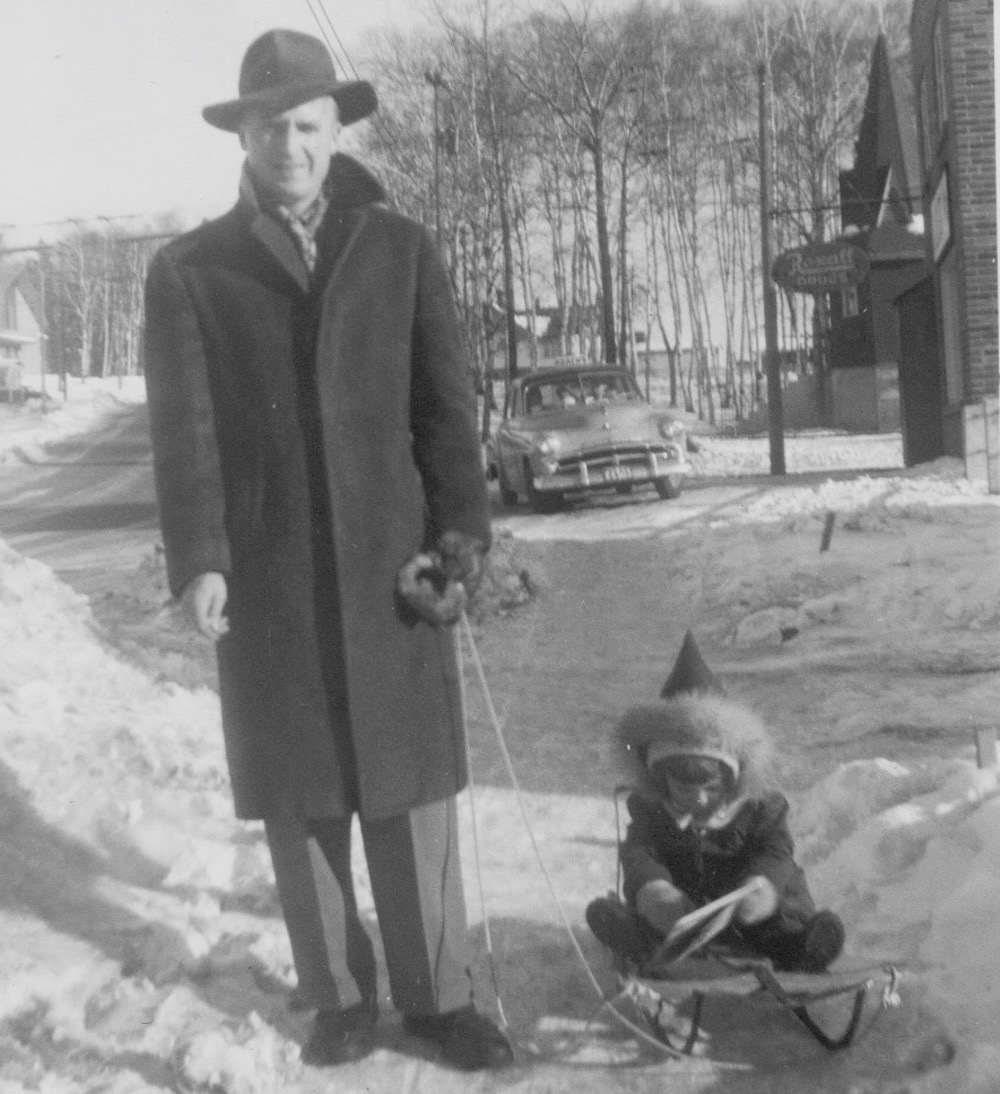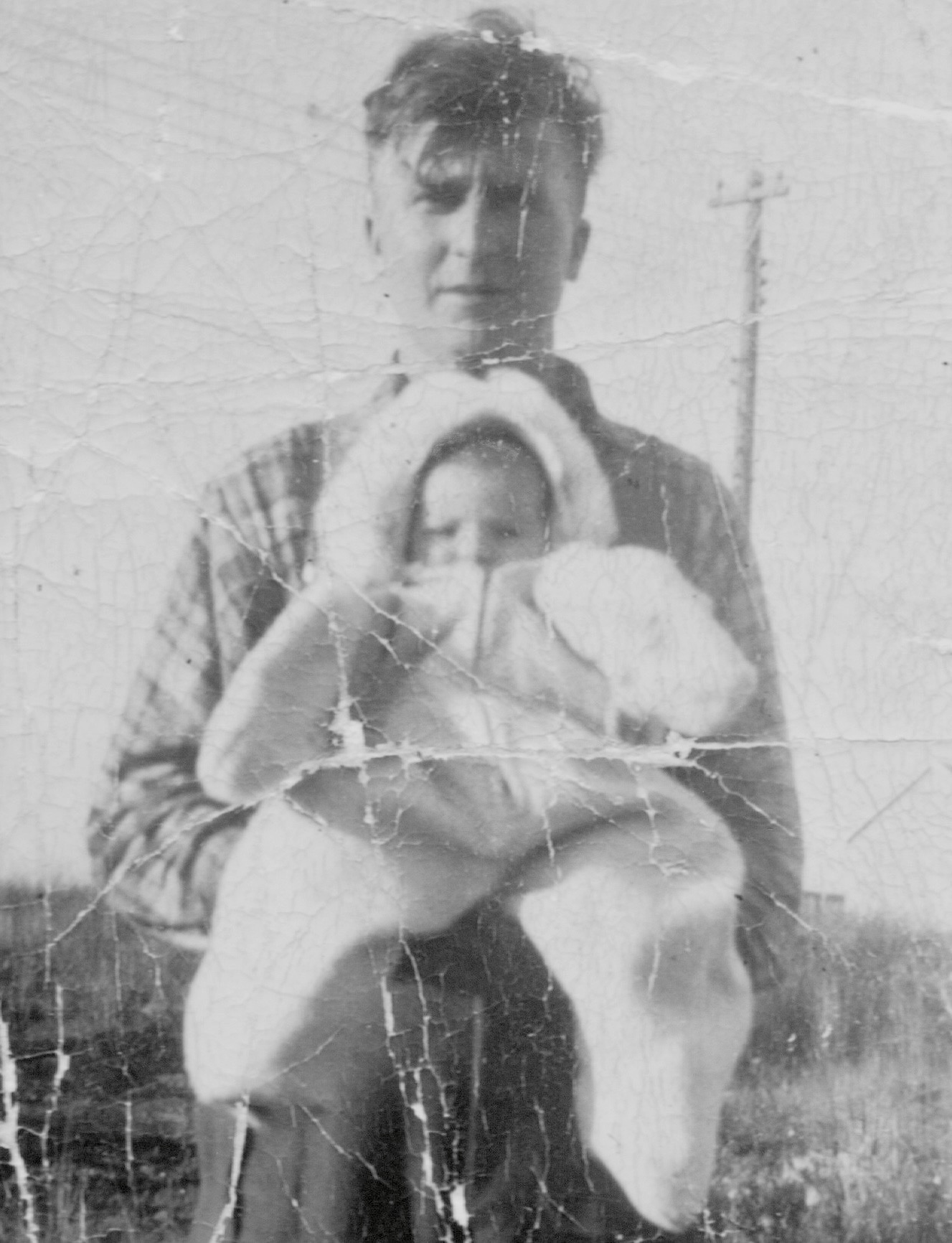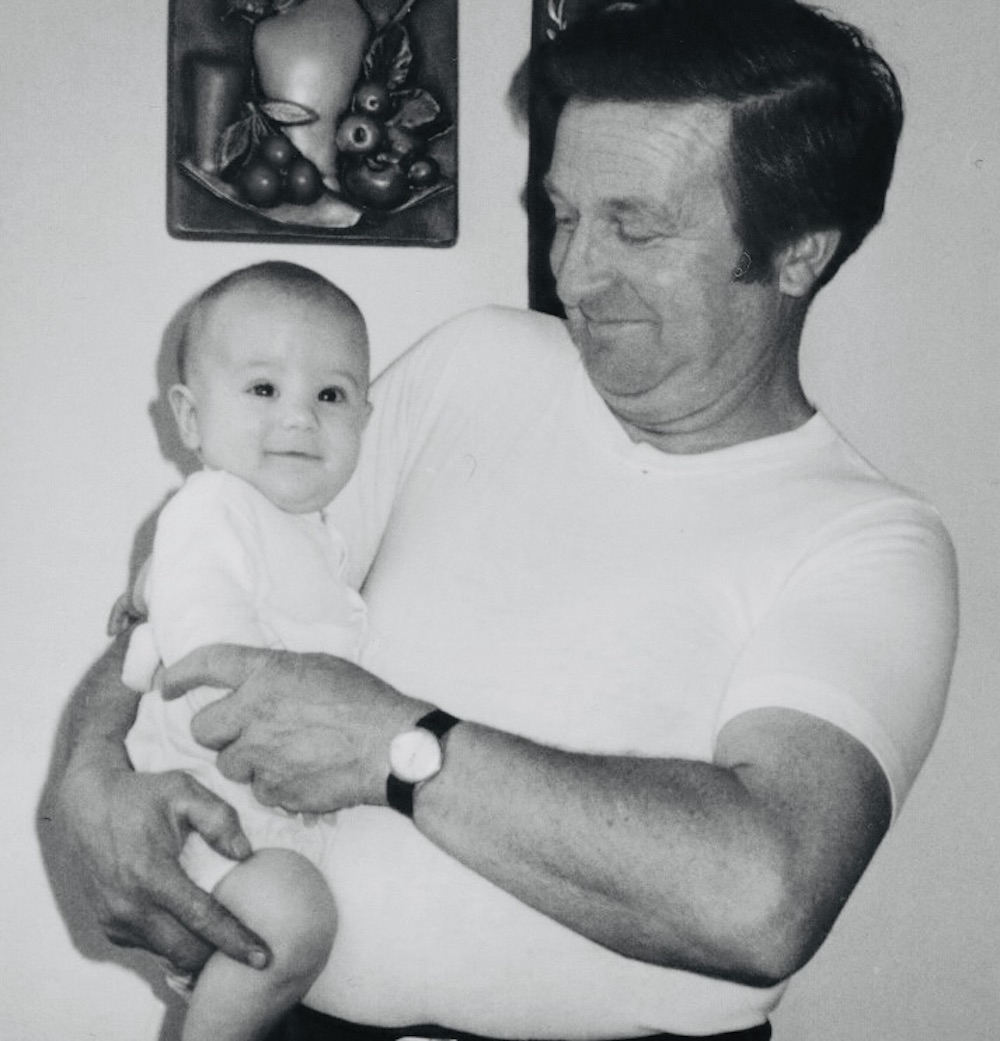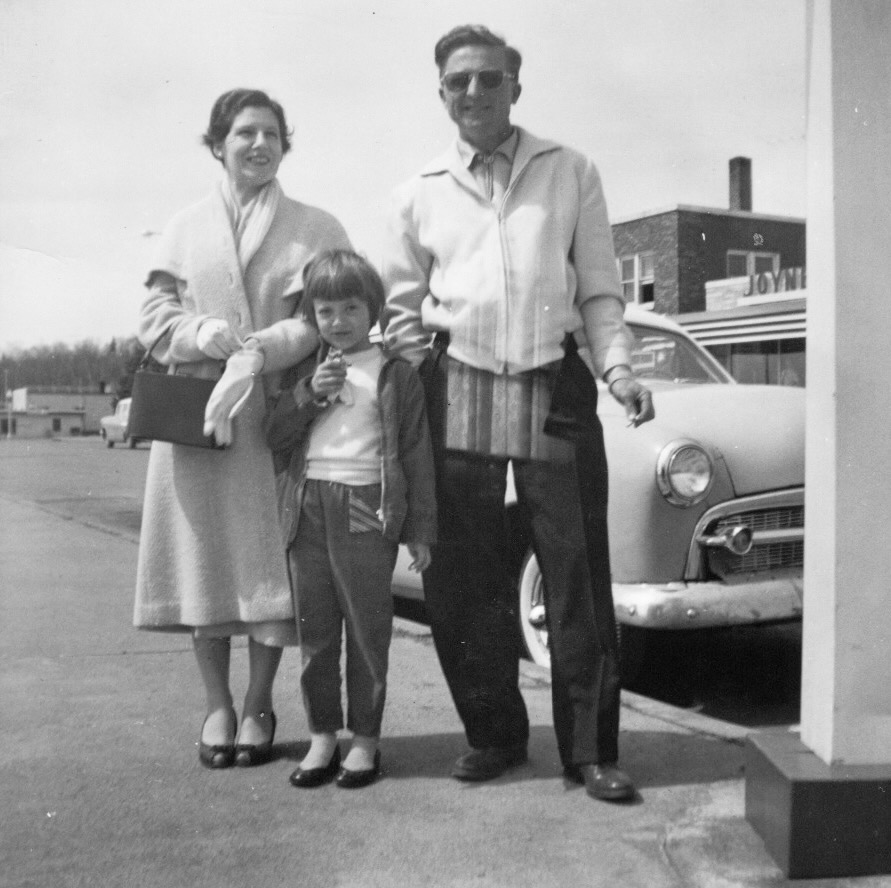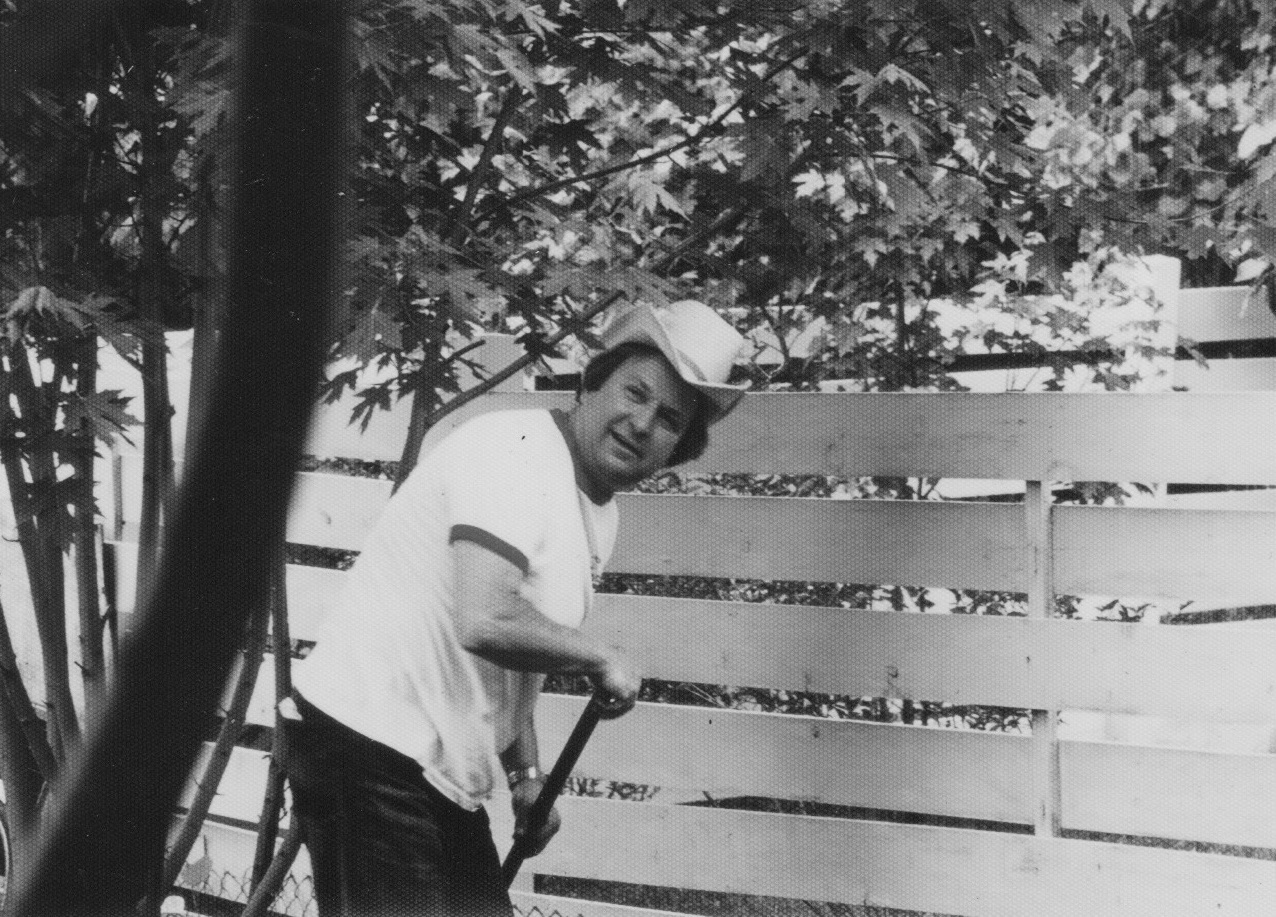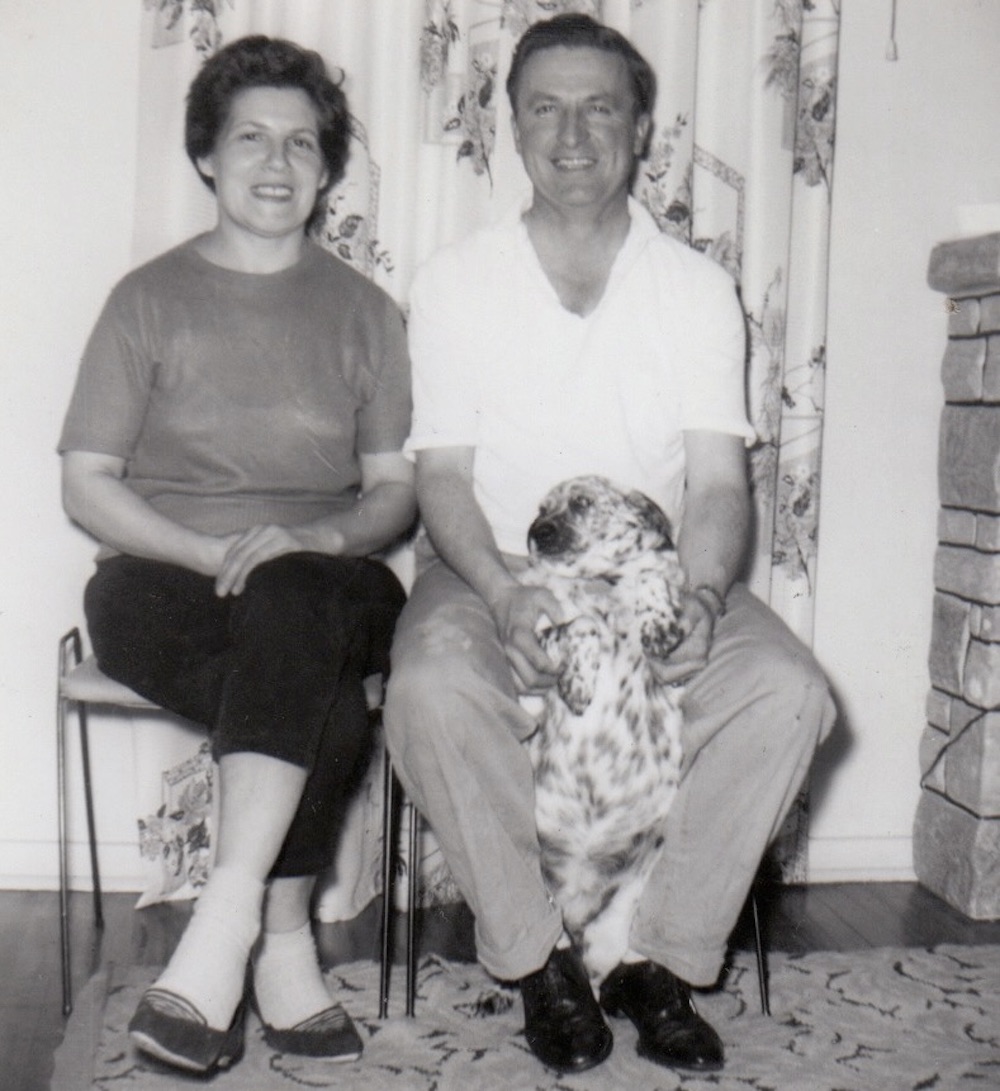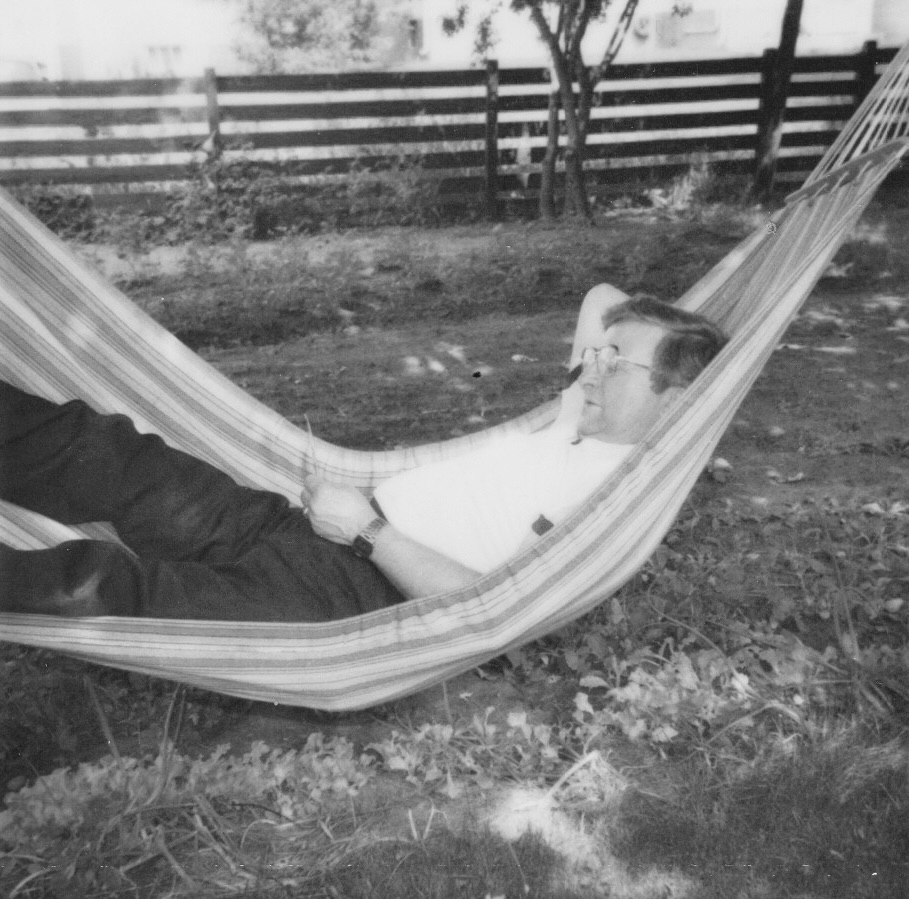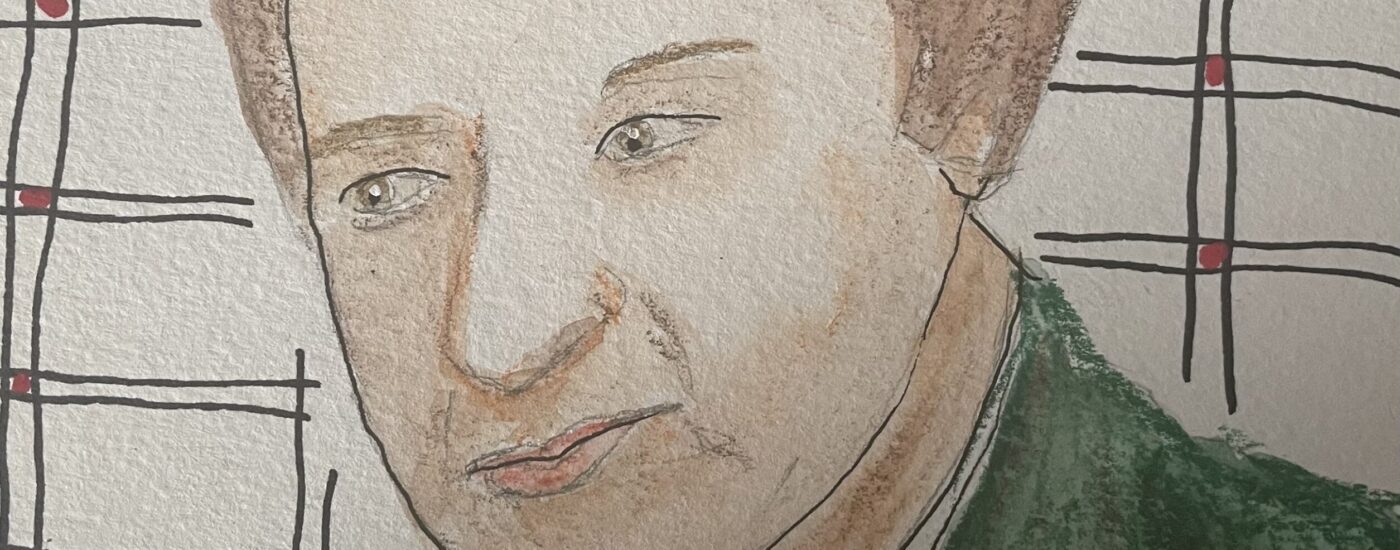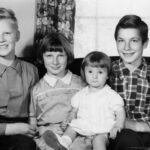It’s been twenty-one years since Ma and The Old Man checked out of Hotel Earth. They died five weeks apart in the dead of winter. Like many things in their life together, Ma took the lead.
Ma died in the middle of the night in an antiseptic hospital room in Victoria. Although it was wonderful to have her close during her final year, it was also heartbreaking knowing that she wanted to go home to 204 and The Old Man. Made even more painful by the knowledge, the plain ugly truth, that the odds were slim to none that it would happen. She was alone, medicated into eternal slumber. The last lethal dose clung to her tongue like a leech as her gaping mouth grasped for her final breath and taste of being human in this manifestation.
Five weeks later and two thousand miles east, The Old Man died in the evening of Saint Patrick’s Day in a human warehouse for seniors, an old folks home, in a room he shared with another old man. My Old Man spent the last year of his life accusing this other old man of stealing his shoes. He died shortly after enjoying his last supper, dozed off unassumingly, and kept on dozing into eternity. I hope he met Ma there. At least that has been my prayer for the last twenty-one years. It brings me comfort, especially on my dark days during the interminable hour of the wolf.
My grief for Ma followed the classic seven stages. But it actually began eighteen months prior to her death when she suffered a heart attack so severe it was a miracle she survived at all, much less a year and half. Of course this is a testament to the feisty will and sheer grit of this formidable little woman. My grief was a slow and steady letting go, of releasing, of holding vigil, of saying goodbyes with kisses on the cheek, of laughter and tears, games of I spy. In the wee hours of the morning, when I received the news that she was gone, my initial reaction was one of shock and disbelief. Crazy, I know. We all knew this day, or night, was coming. And that it was soon upon us. But the heart often rejects what the head knows. To say I was in a severe state of denial is putting it mildly. Part of me sincerely believed that she would linger in this semi-life state forever, or for as long as I needed her to do so, until I was good and ready to follow her into the dark.
My grief for Ma was like my love. Plain and simple. Abiding. Uncomplicated.
My grief for The Old Man was the polar opposite. It was like my love for him. Complicated. Messy. A broiling brew of unhealthy emotions. They encompassed a gamut of the usual suspects — hatred, pity, indifference, frustration, embarrassment, anger, disappointment, sadness, sorrow, shame, confusion, bitterness.
But inside all that chaos and cacophony of consciousness, there was this other big thing. Love.
I loved him. And trust me, he was a hard man to love. Not always, but a lot of the time. Especially as he aged into being the proverbial grumpy old man. And as I age into the grumpy old woman, I have a different perspective towards him — as a man, a husband, a father. I’ve also acquired a deeper understanding of him and my complicated love. One of us has grown and evolved over the past twenty-one years. And since he’s dead, it’s safe to assume it’s me.
I’ve written a lot about The Old Man since March 17, 2001. I’ve explored his alcoholism and its devastating affects on our family; his love/hate relationship with his job as a Breadman; his love of sports, in particular baseball; his unfulfilled dreams of being a drummer or an umpire; his uncanny talent for playing the spoons; his volunteerism; his kindness towards the elderly spinster Jennie; his love of animals and birds; his obsession with shoes or kicks as he called them; his superb fashion sense; his capacity to laugh or cry at the drop of a hat; his faith in God; his ability to speak Finnish fluently; his hatred of his father and his devotion to his mother; his cursing and swearing at everything from wrestlers on TV to teenagers in souped up cars speeding past 204; his compulsion to purchase lottery tickets and chase get-rich-quick schemes; his love of a good joke, in particular those found in Reader’s Digest; his love of gardening and raking leaves; his depression, sadness and melancholy; his undying love for Ma, his fiery Italian girl.
It was through the telling of all these family stories, and our life at 204, that I processed all the emotions, all the things I felt towards him. At first I thought it was very simple. After all he was difficult, a nuisance, a pain in the ass, frightening and ill tempered, bigoted at times, a loser. His words and actions were unforgivable. I was rid of him. No missing this guy. I no longer had to wrestle with the polarization of my contradictory feelings. Hating him and wishing him dead every time he came home drunk, ranting and raving incoherently. And loving the good side of him — the kind, sensitive, shy, tender, generous, smart, funny, compassionate, caring and devoted guy. All the good things revealed in so many expressions of love over the years. The way he cradled our dead parakeet Petey in his hands and wept. Or the two-week, first-light ritual of spitting on my warts because he read somewhere that the first spittle of the day would get rid of them (and it did.) His extraordinary patience while teaching me to drive. His pride in his intelligent daughter after the annual meet-the-teacher nights. The way he hugged me when my heart was broken. And the wonder in his face as he held my son for the first time. How he ran selflessly to the aid of anyone in need. His inability to say no to me.
As the years have passed I have come to understand the full depth and breadth of this man. Yes, he possessed a dark side. He carried a backpack full of demons that haunted him all the days of his life. Demons so frightening that he self-medicated with booze and sugar. Depression so deep he hid himself away in shame and sorrow. In many ways he was typical of his generation. He didn’t talk about his feelings. No one knew about depression or anxiety back then. You didn’t go into therapy, at least not in our small northern town. That would be like admitting you were crazy or unhinged and needed to be institutionalized. It was a lock-the-door-and-throw-away-the-key mentality. No one wanted that. We chalked it all up to his drinking. It was the source of all our family woes, and our deepest darkest secret. What happened at 204, stayed at 204.
Eventually The Old Man did quit drinking. But by then it was too late. He became a dry drunk. Defiant. Obstinate. Hostile. Belligerent. Cranky all the time. Because the truth was, he still felt like shit. And there was nothing to silence the fear, pain and anguish. No crutches. Nothing to soften the edge. Reality bit him hard and it pissed him off. And in addition to his emotional pain, he suffered from a host of physical ailments. By the time he died, both of his legs had been amputated at the knees, as a direct result of diabetes and his unwillingness — or inability — to adhere to dietary rules.
This was where my complicated journey of grief began.
The thing about complicated grief is that it takes way longer to process. There were so many intricate and tangled feelings towards him that I needed to sort out. Thoroughly and exhaustively. And until I did, I was stuck. There was no moving on.
Writing, and the telling of our story, not only revealed the truth about him, but also about me.
Through this process, my compassion muscle grew and grew. Story by story, the layers were peeled away and the lens became clearer, sharper, more in focus. I began to see him for who he really was. Not just a grumpy old jerk. Or a pathetic excuse for a man. But a human being who struggled. Just like me. A human being who was broken. Just like me. A human being who tried to be courageous. Just like me. A human being who was overwhelmed by the world. Just like me. A human being who went to work every day at a job he didn’t always love. Just like me. A human being who was afraid to take risks. Just like me. A human being who was impatient. Just like me. A human being filled with self-doubt and self-loathing. Just like me. A human being who didn’t truly understand his worth. Just like me. A human being with weaknesses and addictions. Just like me. A human being who tried his best. Just like me. A human being who loved his family unconditionally but didn’t know how to express it in a way that was meaningful. Just like me. A human being who thought God had forsaken him. Just like me. A human being who was too sensitive for the world. Just like me.
Now, twenty-one years later, my grief for him is plain and simple. Just like my grief for Ma. It never really goes away. I’ve learned it’s never truly done and dusted. It washes over me in sweet gentle waves. Always unexpected but welcome. I weep for him now, in the same way that I do for Ma. Tears that are healing and restorative.
There is nothing left. But my love for him.
